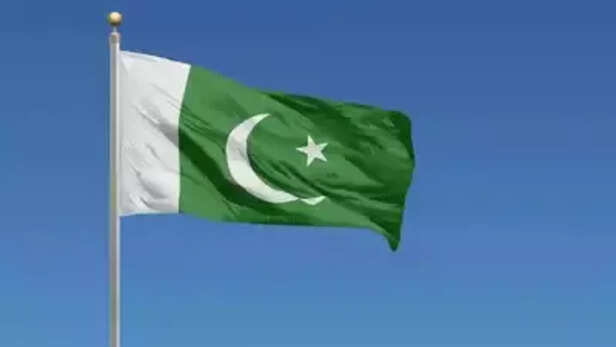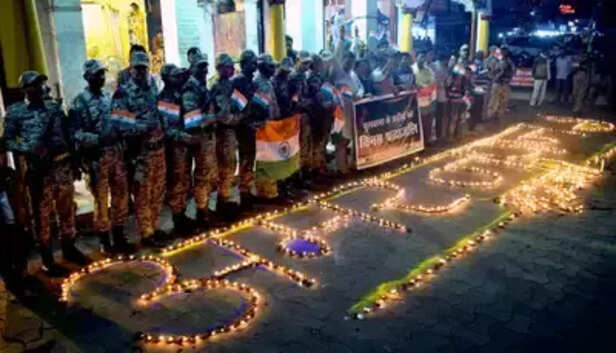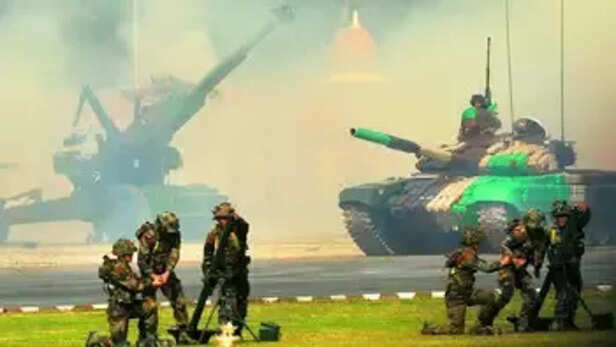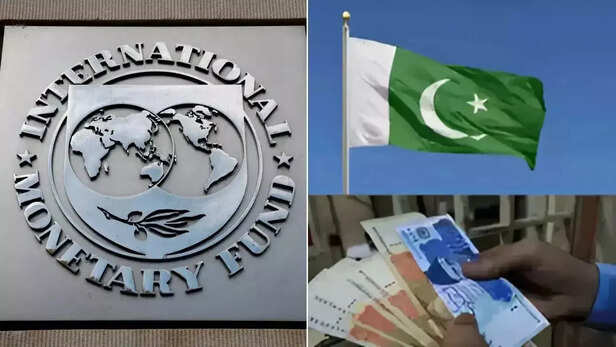When Power Backfires: Is India Too Strong for Sympathy? And The West’s Pakistan Preference
Riya Kumari | May 19, 2025, 23:42 IST
( Image credit : Times Life Bureau, Timeslife )
the global double standards in responding to terrorism, particularly how the world often turns a blind eye when India is targeted—especially by Pakistan. While countries like the U.S., China, and Saudi Arabia continue to aid and shield Pakistan despite its links to terrorism, India’s concerns are frequently dismissed or downplayed. The piece questions whether India’s growing strength has paradoxically made it “too strong for sympathy,” and examines how global politics, media narratives, and strategic interests have allowed a known perpetrator to be treated like a victim—at the cost of justice and truth.
In the global arena, sympathy often follows weakness, not justice. For decades, India has borne the brunt of cross-border terrorism, particularly from Pakistan, yet the world responds with silence, strategic ambiguity, or hollow condolences. Meanwhile, Pakistan – despite its deep-rooted ties with terrorist outfits – continues to enjoy economic bailouts, military aid, and diplomatic shielding from major world powers. The paradox is disturbing: the stronger India grows, the more reluctant the world seems to acknowledge its victimhood. Could it be that India's power has made it too "resilient" to deserve compassion?
The Global Line-up: Who Backs Pakistan—and Why

Historically, Pakistan has been a frontline ally of the U.S., especially during the Cold War and the War on Terror. Despite Osama bin Laden being found in Abbottabad, U.S. aid to Pakistan continued for years. Washington routinely downplays Pakistan's terror links, citing "regional stability" and strategic interests in Afghanistan.
China is Pakistan’s “iron brother,” backing it through military deals, infrastructure projects like CPEC, and frequent vetoes at the UN to block India's efforts to designate Pakistani terrorists. China’s support isn’t just economic—it’s ideological and strategic, a counterbalance to rising Indian power.
These Gulf nations have poured billions into Pakistan over the years through loans and oil aid. Despite being aware of Pakistan’s nurturing of extremist ideologies, these ties remain strong due to religious affinity, shared security concerns, and political leverage.
With a large Pakistani diaspora and a history of colonial entanglement, the UK often takes a neutral stance on India-Pakistan issues. British MPs have frequently echoed pro-Pakistan narratives, especially regarding Kashmir, even as London quietly courts Indian trade deals.
President Erdoğan has openly supported Pakistan’s stance on Kashmir, frequently criticizing India in international forums. Ankara’s growing Islamism and geopolitical ambitions in South Asia have made it a vocal, if unreliable, ally for Islamabad.
Organizations like the UN and OIC (Organisation of Islamic Cooperation) have repeatedly failed to hold Pakistan accountable for state-sponsored terrorism. Resolutions condemning India, especially post-370 abrogation in Kashmir, emerge quicker than action against terrorist safe havens in Pakistan.
When India Suffers: The World's Selective Silence

Despite being the victim of some of the most gruesome terror attacks — the 26/11 Mumbai attacks, the Pulwama suicide bombing, the Parliament attack — India rarely receives the moral solidarity or urgent action that follows similar incidents in Western countries.
Why the Bias?

1. Strategic Self-Interest: Many global powers view Pakistan as a necessary evil—unstable but useful, particularly in dealing with Afghanistan, countering India, or balancing China’s influence.
2. Perception Politics: India, with its booming economy and strong military, is often perceived as capable of defending itself, while Pakistan is treated like a fragile state needing sympathy and leniency.
3. Kashmir Card: The narrative of India as an “oppressor” in Kashmir is consistently weaponized to justify Pakistan’s actions, no matter how violent or illegal they may be.
4. Media Narratives: Western media frequently amplifies Pakistan’s grievances and downplays India’s security concerns, often portraying Pakistan as the underdog in a David vs. Goliath scenario.
The Uncomfortable Truth: Sympathy Has a Hierarchy

International empathy is often reserved for those perceived as weak or helpless. In India’s case, its strength, democracy, and diplomacy have ironically made it less likely to be seen as a victim. The global community prefers manageable narratives—and a powerful, confident India doesn’t fit the mould of one needing rescuing.
But this moral blindness is dangerous. When terror is normalized against one nation, it becomes a precedent for silence elsewhere too. The world cannot afford selective outrage when terrorism is involved.
India Must Speak Louder
India doesn’t need sympathy—but it does deserve fairness. It must reframe its narrative on the global stage: not as a rising power to be feared or balanced, but as a responsible state that demands accountability. If the world chooses to be blind, then perhaps it's time for India to make its own eyes sharper—and its voice, louder.
The Global Line-up: Who Backs Pakistan—and Why

Pakistan
( Image credit : Times Life Bureau )
1. United States
2. China
3. Saudi Arabia & UAE
4. United Kingdom
5. Turkey
6. International Institutions
When India Suffers: The World's Selective Silence

Pulwama attack
( Image credit : Times Life Bureau )
Despite being the victim of some of the most gruesome terror attacks — the 26/11 Mumbai attacks, the Pulwama suicide bombing, the Parliament attack — India rarely receives the moral solidarity or urgent action that follows similar incidents in Western countries.
- Pulwama (2019): Even after Jaish-e-Mohammed claimed responsibility for killing 40 CRPF soldiers, there was no global crackdown on Pakistan. A few statements of "deep concern" were the extent of the world's outrage.
- Uri (2016): The Indian Army base attack resulted in 19 soldiers dying, yet major world powers refrained from directly naming Pakistan, let alone acting against it.
- Pathankot (2016): Attackers were traced back to Pakistani soil, but the investigation hit diplomatic quicksand as Islamabad denied any involvement.
Why the Bias?

War
( Image credit : Times Life Bureau )
1. Strategic Self-Interest: Many global powers view Pakistan as a necessary evil—unstable but useful, particularly in dealing with Afghanistan, countering India, or balancing China’s influence.
2. Perception Politics: India, with its booming economy and strong military, is often perceived as capable of defending itself, while Pakistan is treated like a fragile state needing sympathy and leniency.
3. Kashmir Card: The narrative of India as an “oppressor” in Kashmir is consistently weaponized to justify Pakistan’s actions, no matter how violent or illegal they may be.
4. Media Narratives: Western media frequently amplifies Pakistan’s grievances and downplays India’s security concerns, often portraying Pakistan as the underdog in a David vs. Goliath scenario.
The Uncomfortable Truth: Sympathy Has a Hierarchy

IMF
( Image credit : Times Life Bureau )
International empathy is often reserved for those perceived as weak or helpless. In India’s case, its strength, democracy, and diplomacy have ironically made it less likely to be seen as a victim. The global community prefers manageable narratives—and a powerful, confident India doesn’t fit the mould of one needing rescuing.
But this moral blindness is dangerous. When terror is normalized against one nation, it becomes a precedent for silence elsewhere too. The world cannot afford selective outrage when terrorism is involved.
